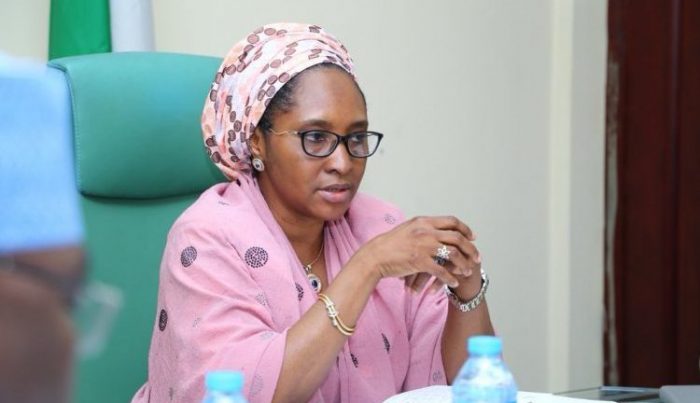The Minister of Finance, Budget and National Planning, Dr Zainab Ahmed, says from the report released by the National Bureau of Statistics (NBS), the Nigerian economy is doing better than expected.
Dr Ahmed said this on Wednesday while briefing State House reporters on the outcome of the Federal Executive Council (FEC) presided over by President Muhammadu Buhari.
- Inflation rises to 13.22% in August, highest in 2 years
- Why FG pushes for zero oil economy – NEPC CEO
It comes a day after NBS released inflation figures for August as 13.2%, the highest in two years.
The minister said measures were being put in place to stabilise the economy and ensure that it continues to run despite the disruption caused by the COVID-19 pandemic.
She said: “We presented a memo to council in respect of the second quarter GDP report, earlier released by the National Bureau of Statistics on the 24th of August.
“Why the memo is so dated is because there was a retreat last week and we couldn’t get scheduled as well. Still for us, the information is important and topical.
“The GDP report shows that the economy went into negative growth of -6.10% in the second quarter but that the aggregate performance for half year 2020 is -2.1%. This performance of -6.10% is a good performance in the sense that it is better than what we have projected second quarter performance to be at -7.2%.
“This performance also is a good performance because it outperformed the projections that had been done by the Brentwood institutions. But it also outperformed very developed economies of the world and also economies that are comparable to us.
“The US for example went into negative growth of 33% for the second quarter 2020 and 19% half year 2020. Similarly, the UK, Canada, Italy and several countries of the world all went into very significant negative growth.
“So, Nigeria’s economy has shown some level of resilience in this level of performance.
“We also reported to council that even though out of the 46 sectors of the economy, 30 of these sectors showed negative growth, but there were still some sectors that were growing on the positive territory.
“These sectors include agriculture as well as financial services and the ICT services. This is actually showing that even during the COVID era, there were still some sectors that stood firm and indeed were growing.
“The inflation was also reported to be moving up gradually, capital importation did not dry up despite the lockdown and the difficulties all countries experienced. But this is reflected by the significant decline in capital importation into the country.
“Exchange rate has moved up from $326 at the beginning of the quarter to $367. Again this is reflecting some of the policies that government had to take to ensure that the economy remain in a stable condition.
“In addition to the roll out of the economic sustainability plan, which had seen us starting to implement major public works across the country, to ensure that people are employed or kept in jobs, this ESP improve support for small businesses including payroll support so that people are not finding themselves unemployed or small businesses are not closing down.
“Other interventions included intervention funds for small, medium enterprises to be able to borrow, intervention funds for health sector, intervention funds for infrastructure.
“All of these are designed to ensure continuous economic activities help to stabilize the economy. We are lucky that these things were rolled out early reducing the impact of the negative growth.”

 Join Daily Trust WhatsApp Community For Quick Access To News and Happenings Around You.
Join Daily Trust WhatsApp Community For Quick Access To News and Happenings Around You.


